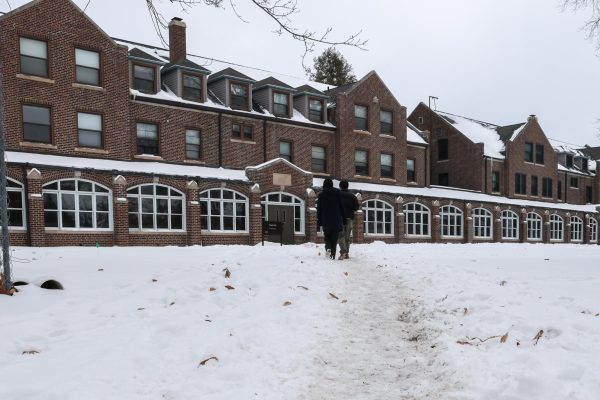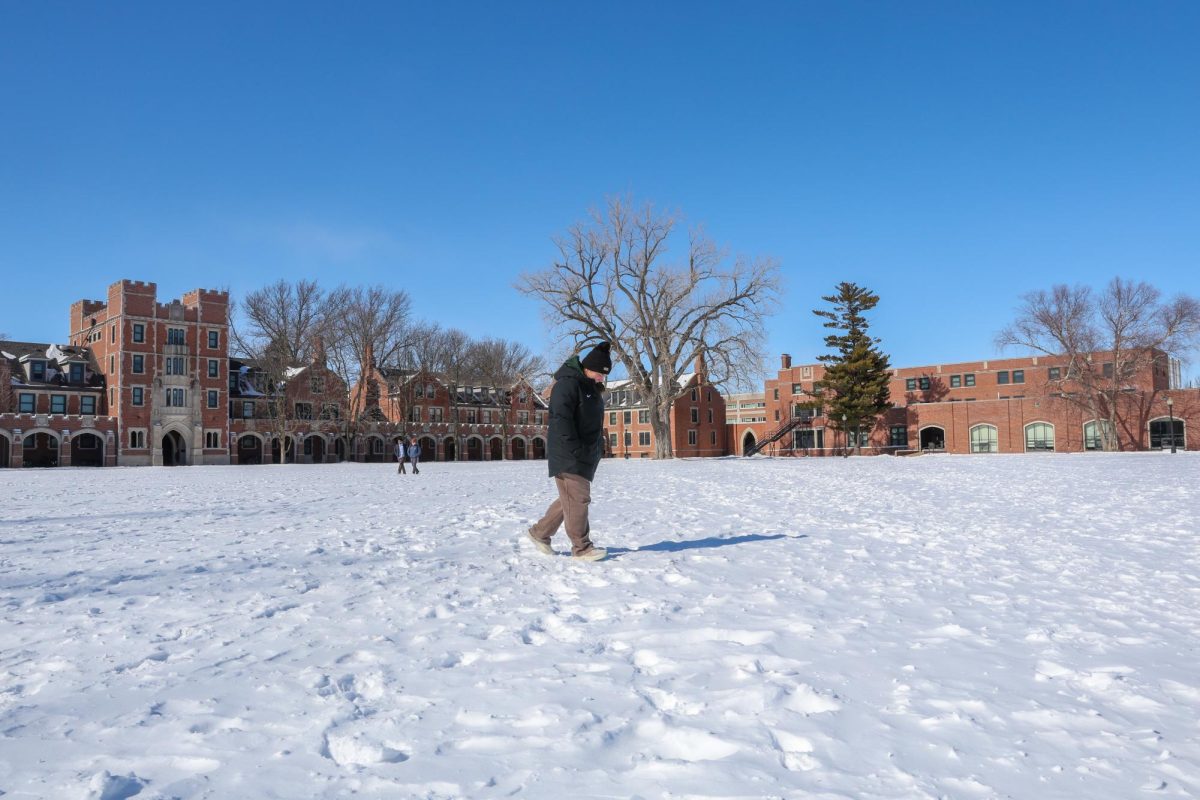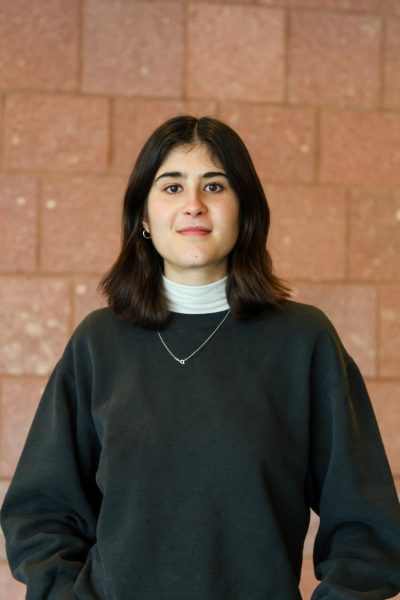Grinnell College limited all campus activity to essential operations after a snowstorm on Feb. 12. The College closed its buildings to the public, allowing only staff, faculty, and students access — classes and sports practices continued as usual.
“The decision was made to close campus to the public to reduce the vehicle and pedestrian traffic on campus,” Heather Cox said, director of emergency management and risk mitigation. “It just helps ensure that we don’t have members of the public getting into spaces that might not be staffed at the time.”
The College shifted all non-essential employees in administrative and academic offices to remote work. Essential employees within Facilities Management (FM), Dining Services and Campus Safety were scheduled as usual.
Amy Van Manen, office manager of the facilities management department, wrote in an email to The S&B that nearly all staff in FM are considered essential.
“Nearly all the dining staff, Campus Safety and the professional staff are all considered essential as well,” Cox said.

Burling Library which is usually open till 1 a.m. and Kistle Library, open till 10 p.m., closed at 5 p.m. the day of the storm. The Charles Bear `39 Recreation and Athletic Center and Bucksbaum Center for the Arts were only open for classes or sport practices.
Cox said that the choice to close the libraries early was due to “concerns about staff availability, as well as them traveling when the conditions would maybe be the worst.”
Limiting activity to essential operations did not include canceling classes which were held as scheduled, a decision that was viewed unfavorably by some students and professors.
Khairy Barnes `26, who lives a mile from campus and often drives to school, said that his professors canceled class last minute, Wednesday morning.
“As I was getting ready … I was still kind of annoyed that I had to get up and go,” Barnes said. “I don’t think it’s the end of the world if we cancel class for one day.”
Timothy Dobe, department chair and professor of religious studies, chose to cancel class for his students.
“Students are just dealing with too much…the workload is crazy. So, I think that’s important to keep in mind as a professor,” Dobe said. “There’s a real risk to students …we’ve had students break legs before just by slipping.”
During his twenty years of working at the College, Dobe said he could only remember a couple times in the past when the College had canceled classes. “It just seems like the bar is too high for cancellation.”




















































